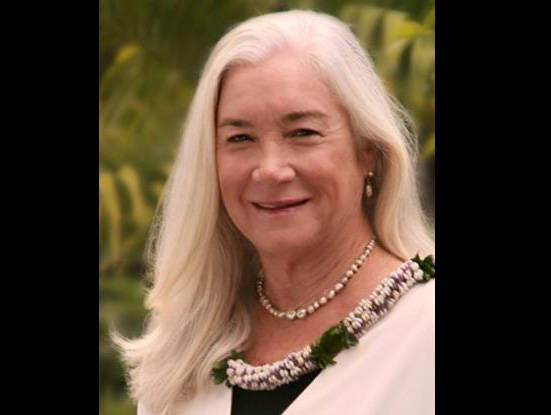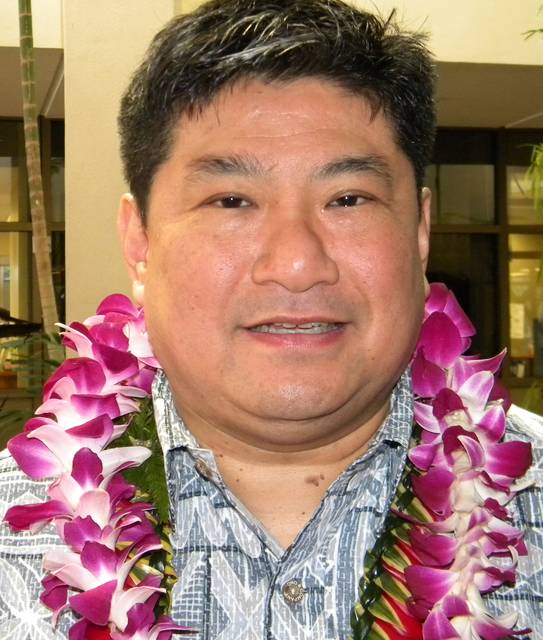HILO — The county Planning Department is suggesting some tweaks to a bill regulating vacation rentals as it heads to its next stop in a long process toward becoming law.
The Windward Planning Commission has scheduled Bill 108 for 9:30 a.m. Thursday at Aupuni Center in Hilo. It then goes to the Leeward Planning Commission on Sept. 20 before returning to the County Council for possible amendments and vote. The public can testify at the planning commissions as well as at the council meetings.
Planning Director Michael Yee is asking the commissions to send a favorable recommendation on the bill with 16 suggestions for changes, some administrative in nature and some more substantive.
North Kona Councilwoman Karen Eoff, one of the bill sponsors, said late Friday she was still reviewing the recommendations and hopes to meet with the Planning Department staff next week to discuss the ramifications of the suggestions.
“This has been a long process with a lot of input from the public, the administration and from council members,” Eoff said. “I’m looking forward to the discussions with both the Windward and the Leeward Planning Commissions.”
The bill is an attempt to prohibit unhosted short-term rentals in residential and agricultural zones, while allowing them in hotel and resort zones as well as commercial districts. Existing rentals in disallowed areas would be able to be grandfathered in by applying for a nonconforming use certificate that must be renewed annually.
Bill 108 applies only to unhosted, short-term or vacation rentals where the owner does not live on site. Hosted rentals, such as bed and breakfasts and home-sharing units, are not addressed in the bill.
The bill tries to strike a balance between residents facing an inundation of vacationers in their once-quiet neighborhoods, and those trying to supplement their income, or make an income, by renting homes to vacationers.
Hawaii Island relies on short-term vacation rentals to fill gaps in lodging inventory for visitors looking for lower-priced accommodations or for accommodations in areas visitors want to stay but are not served by hotels, notes the Planning Department staff analysis released Friday.
“Thus, any proposed regulation of vacation rentals should be made thoughtfully so that the safety and convenience of surrounding neighbors is balanced with the economic benefits of providing a mix of visitor accommodations,” the staff report says. “It is uncertain what the overall effect of this bill will have on the economy of the island, which relies heavily on tourism, but it is apparent that this bill may have beneficial economic impacts in some areas (primarily resort zoning) and adverse economic impacts in other areas like agricultural areas and Volcano Village.”
Vacation rentals in agricultural areas could especially be affected, because state land use law dictates that all dwellings on land in the state land use agricultural district are deemed farm dwellings and visitor accommodations are not allowed, except for the first dwelling on lots created before June 4, 1976. State law requires that farm dwellings be used to house farm workers rather than vacationers.
“Based on vacation rental statistics for the county it is likely that many hosted and unhosted short-term vacation rentals currently operate in the agricultural district without regard for state law,” the report notes.
Since the county zoning code currently doesn’t define or regulate short-term vacation rentals except for bed and breakfasts, these visitor accommodations have been established by landowners without any permitting requirements by the department.
“Thus it is likely that visitor accommodations in farm dwellings, which do not conform to state law, will come to light and be instructed to cease operations when the department investigates complaints as a result of this bill,” the analysis states.
That means each vacation rental within the agriculture boundary on land rezoned since 1976 must be handled on a case-by-case basis through a special use permit, Deputy Planning Director Daryn Arai told the County Council earlier this summer.





Existing illegal SFH vacation rentals SHOULD NOT be “grandfathered” in! That’s rewarding scofflaws.
We don’t need vacation rentals. The government should just keep raising taxes on everything, making new regulations, then hiring more government workers to enforce this craziness. As it is we are only marginally loosing population, and the economy is flat, we really can do a lot better and regulation is always the answer!
I agree. We shouldn’t let people do what they want with their property. Let’s let the County set up regulations that don’t make sense, so they can tax more to regulate more. We wouldn’t want rural landowners in Volcano making a few extra bucks renting out their property (in an area there are no hotels).
Let’s just allow off-island owned hotels take almost all the profits off-island. We wouldn’t want private individuals to have any chance at being any bit entrepreneurial. I love the giant whoosh sound of money leaving the island.
Good news, though, councilperson Eoff, will be able to maintain her vacation rental (which she lied about even having).
You guys know this is being driven by the commercial hospitality industry, right?
If they levy fees on rentals that they deem illegal, the price of those rentals goes up.
If they drive out rentals they deem illegal, that reduces the supply of rentals and drives more people to the resorts.
In BOTH cases, the tourists pay MORE and spend LESS in the smaller Island businesses.
WAKE. THE. HECK. UP. HAWAI’I. !!!!
I’m glad this bill is advancing and thanks again Dru and Karen for continuing to put this legislation forward through committee. The real problem on Hawaii island is all the mainland opportunists like Air BnB and HomeAway and even here with Kona Coast Vacation Rentals that have disenfranchised the opportunity of local people who live and work by listing these short term rentals. I loved listening to the trickle down argument of how this will un-employ many cleaning service people and also take away from small business, which is a crock. The real problem, particularly in southern Ag designated areas where housing was cheaper was people just ignored the laws in place and set up shop. As far as residential areas, many subdivisions and neighborhoods have articles of incorporation that many residents may be unaware of. If you have an issue with short term vacation rentals in your hood or building or unit, do your research. Many times those articles and also subdivision rules don’t allow for short term rentals and you do have legal recourse because it was all in the disclosures before the owners of these STVR’s bought the property